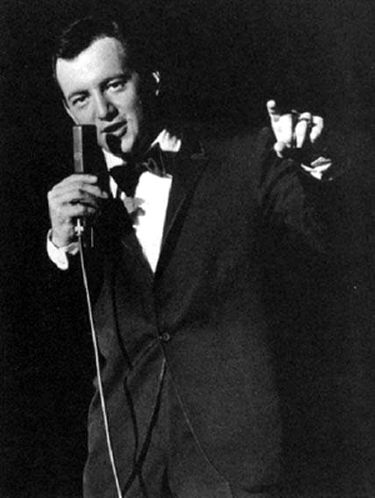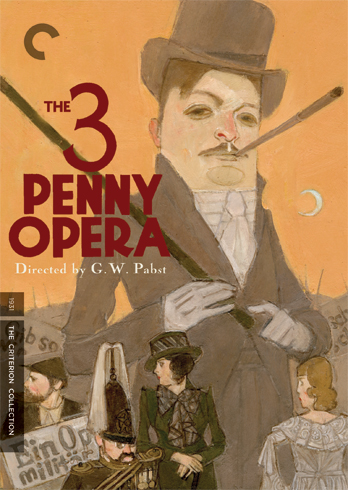 The dances I attended during my college years provided me with some of the fondest musical memories I own. Among those memories, Bobby Darin’s lilting “Mack the Knife” holds a place of particular prominence. (I’m not quite sure why; I suspect it’s equal parts unusual rhythmic construction and the strange dichotomy between the song’s easygoing mood and downright unsettlin’ lyrics.)
The dances I attended during my college years provided me with some of the fondest musical memories I own. Among those memories, Bobby Darin’s lilting “Mack the Knife” holds a place of particular prominence. (I’m not quite sure why; I suspect it’s equal parts unusual rhythmic construction and the strange dichotomy between the song’s easygoing mood and downright unsettlin’ lyrics.)
Naturally, I grew familiar with Louis Armstrong’s version in subsequent years, as well as with Ella Fitzgerald’s. And most recently, with Mark Lanegan’s jaggedly Waits-like interpretation. (A Michael Buble version? I have no idea what you’re talking about.) But Darin’s remains the only performance capable of instantly transporting me back to those carefree college days.
SMASH CUT TO THE PRESENT:
A couple nights ago, I found myself in the mood for a bit of German Expressionistic Cinema. (Come on! You’ve felt that way before, right? It’s a pretty universal human trait.) So I decided it was time to give G.W. Pabst’s The 3 Penny Opera a try. Which was easy, thanks to The Criterion Collection and Hulu+.
And I ran smack into this:
Wait. Darin’s peppily creepifying ballad is not an original work? Is nothing sacred?
Of course, The 3 Penny Opera is itself an “unoriginal,” strictly speaking. It’s an adaptation of “Die Dreigroshchenoper” — an opera “by and for beggars,” with libretto by playwright Bertolt Brecht and music from composer Kurt Weill. Described with charming self-deprecation and humility as a work that “transformed saccharine, old-fashioned opera and operetta forms, incorporating a sharp political perspective and the sound of 1920s Berlin dance bands and cabaret,” subsequent press clippings say that “Weill’s acid harmonies and Brecht’s biting texts created a revolutionary new musical theater.” It was a huge success.
 Pabst’s cinematic version was a bit of a troubled child, suffering early on from its creators’ vicious infighting and later from the destructive opposition of the Nazis. In fact, all original prints of the film were destroyed as a result of the Nazis efforts, and the film as we know it was reconstructed years later.
Pabst’s cinematic version was a bit of a troubled child, suffering early on from its creators’ vicious infighting and later from the destructive opposition of the Nazis. In fact, all original prints of the film were destroyed as a result of the Nazis efforts, and the film as we know it was reconstructed years later.
Oh, wait. One last note on the origin of the song that I would once have categorically insisted was a Darin Original: the idea behind Weill and Brecht’s massively-successful work came from “The Beggar’s Opera”, a massively-successful work from British poet and dramatist John Gay, inspired (supposedly) by his friend Jonathan Swift’s letter to Alexander Pope.
Maybe Darin’s not in such bad company after all.
(In keeping with the …entrepreneurial the spirit of this post, I blatantly stole its title from Kirby Ferguson’s fantastic web series. I have no shame.)













